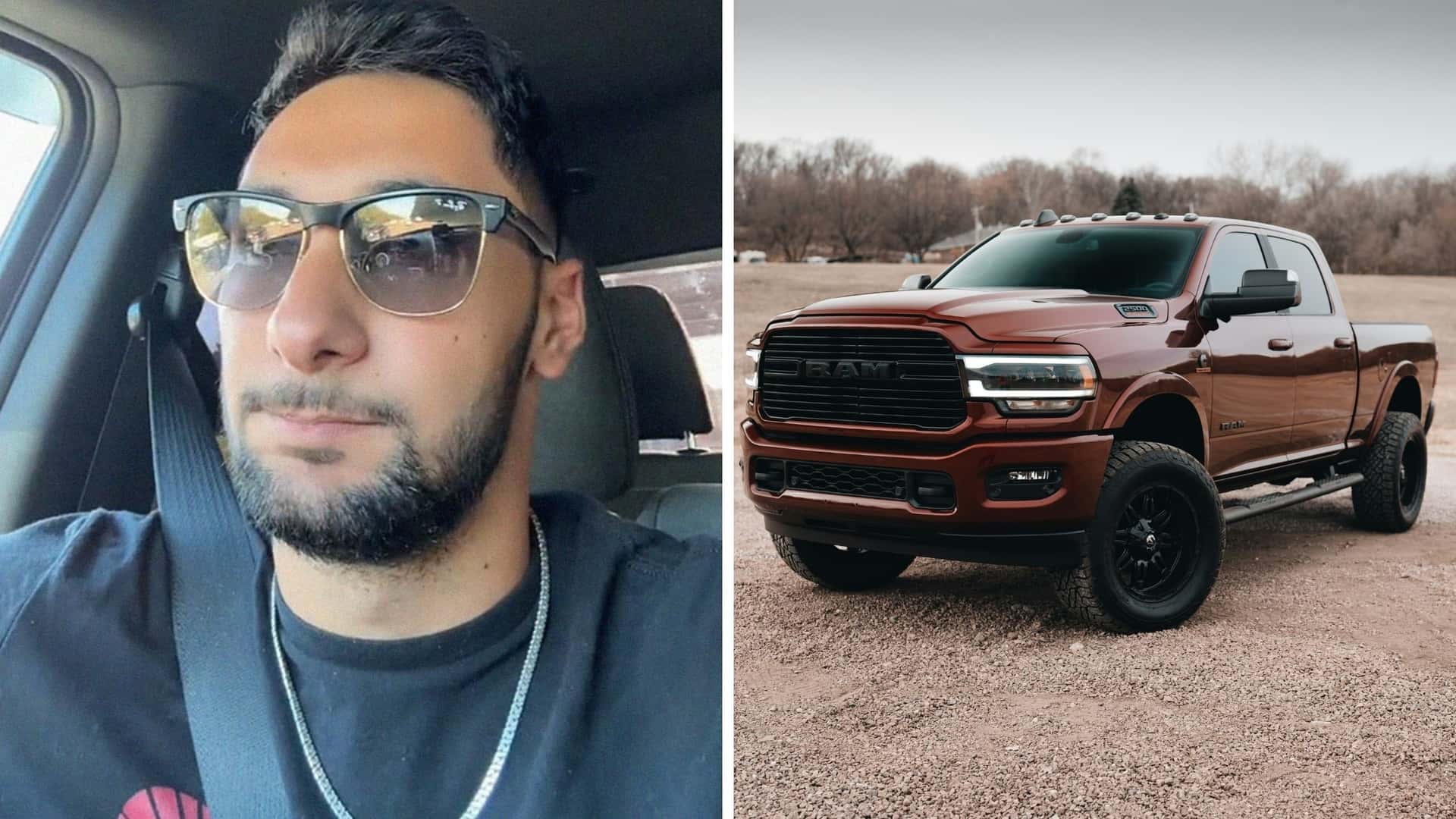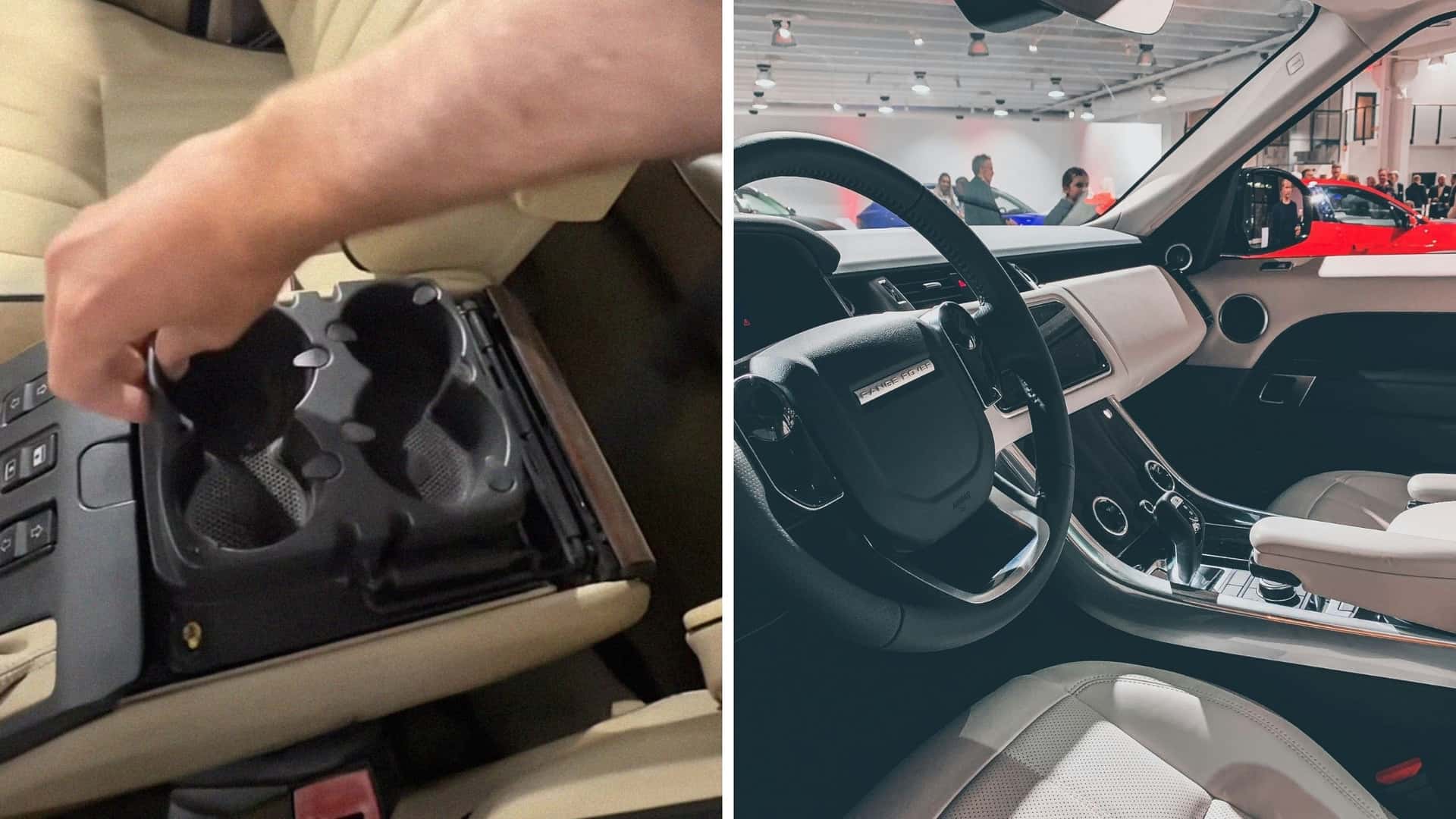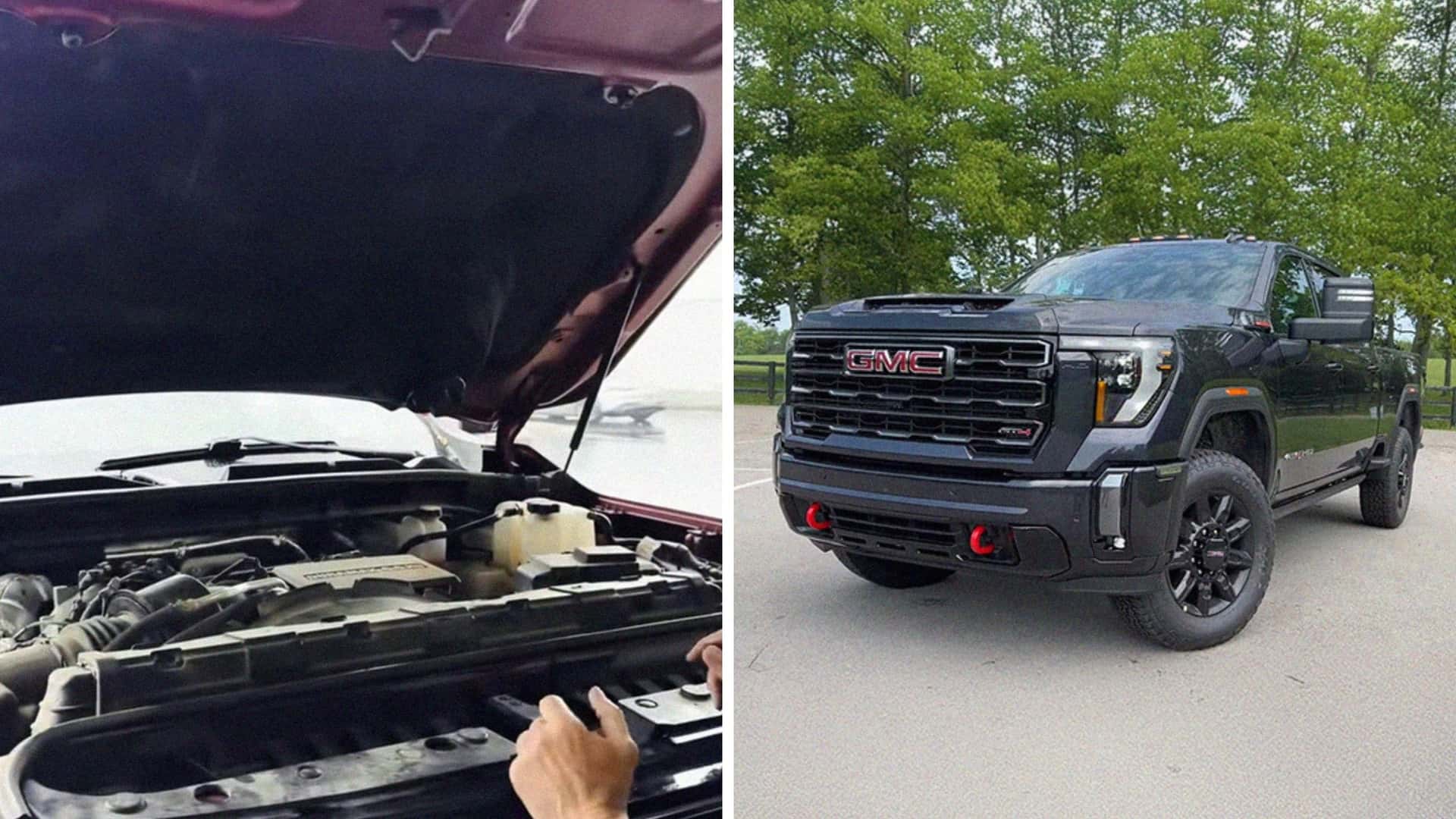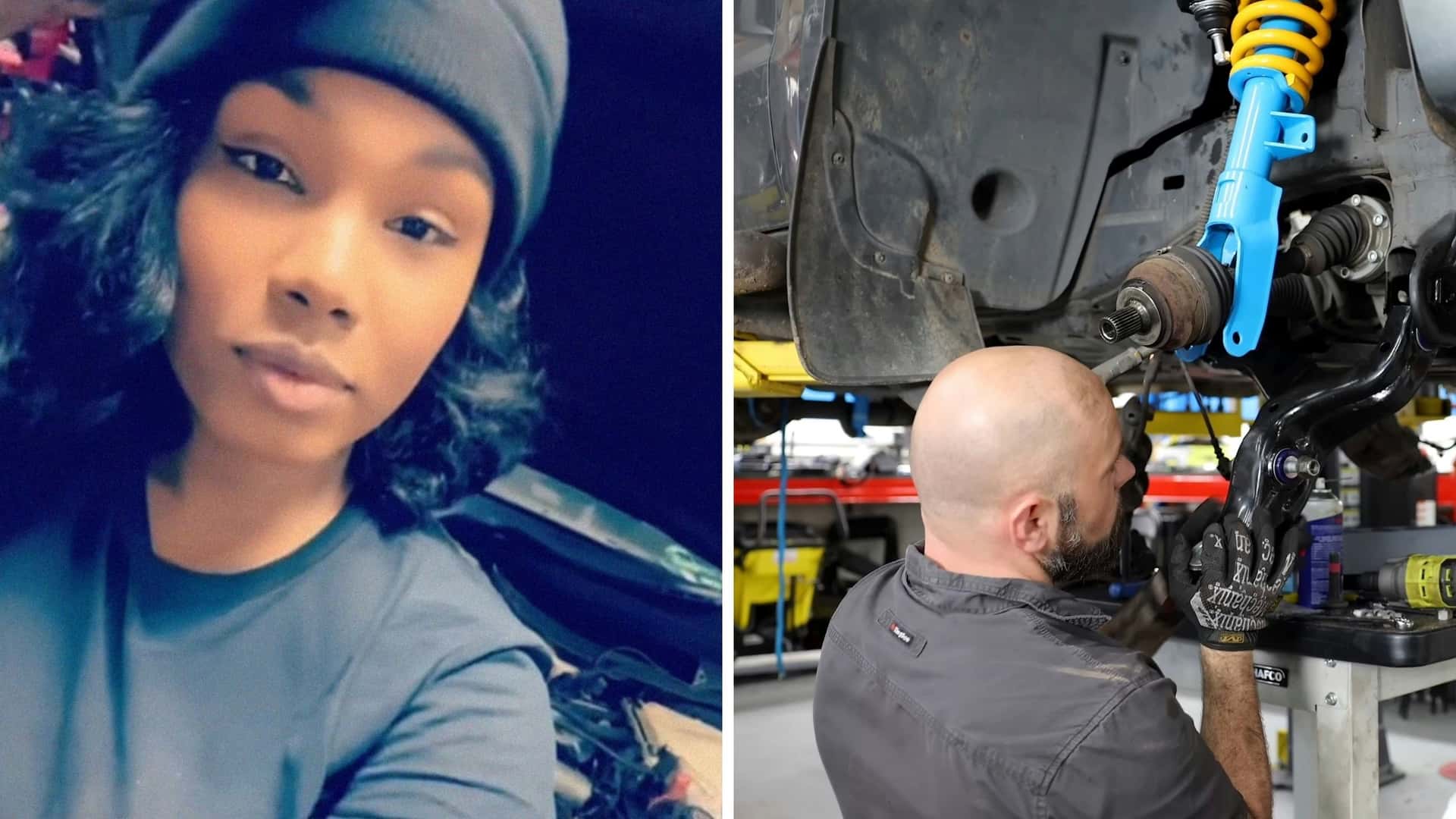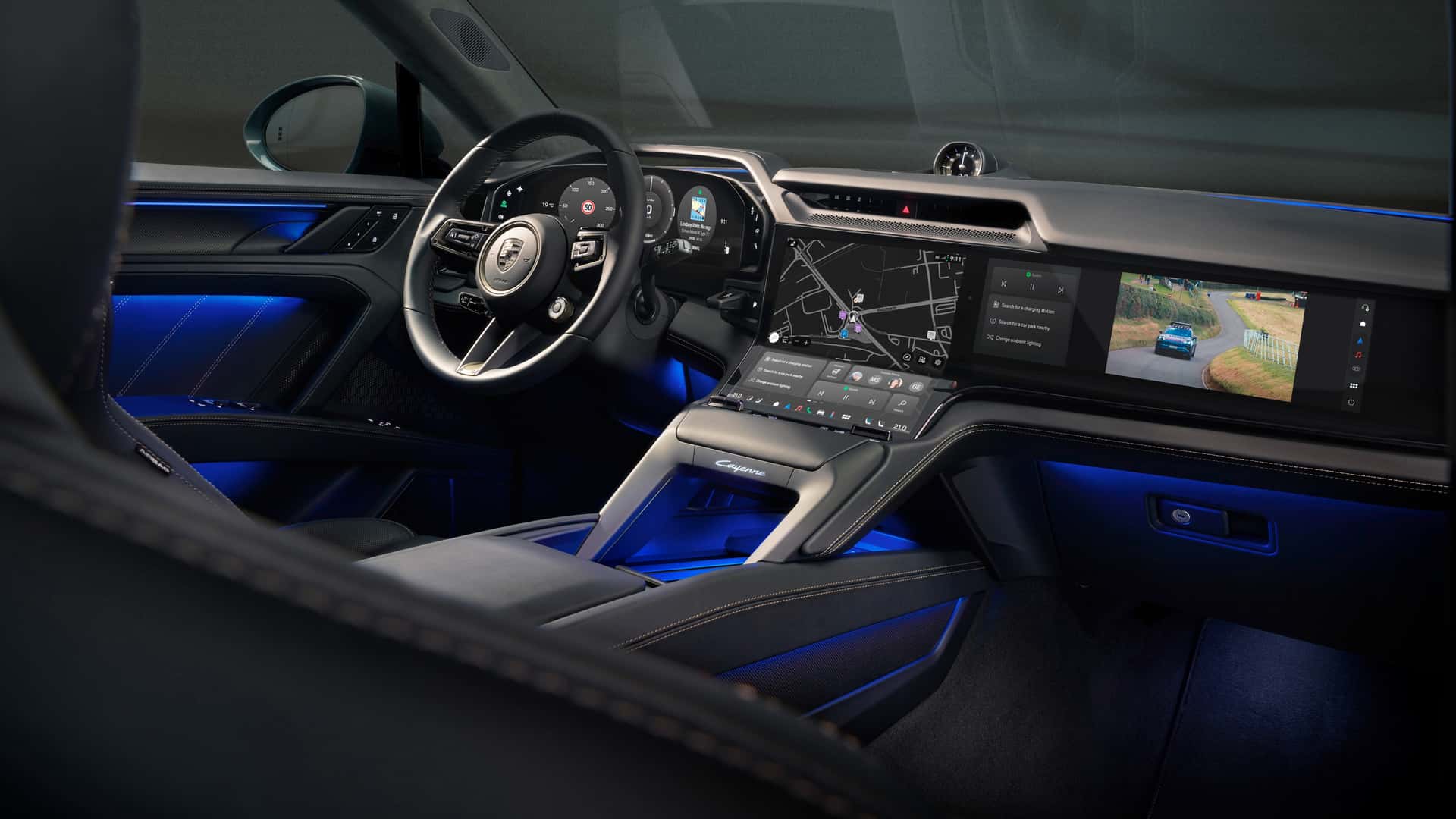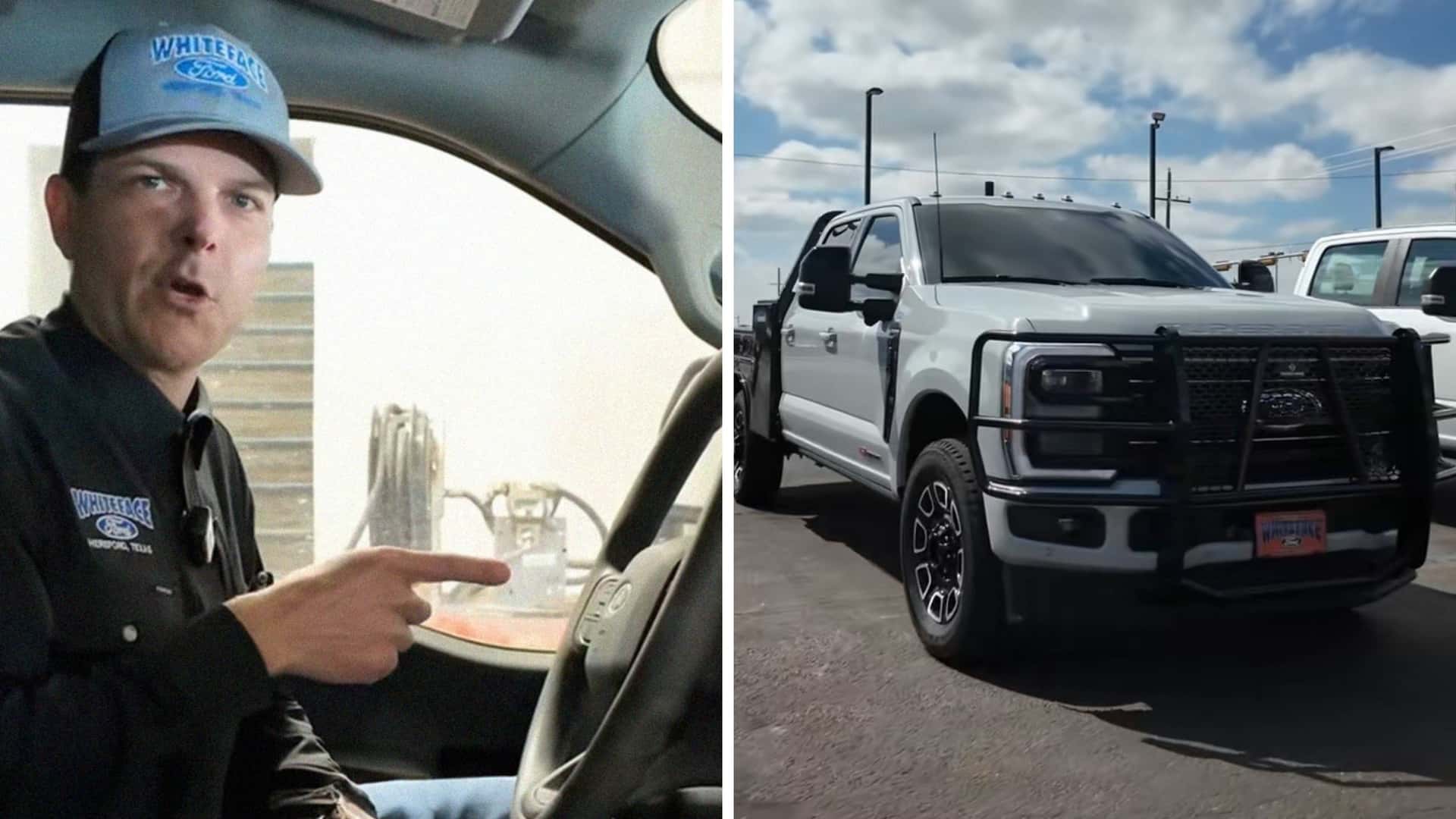‘We Were All Wrong:’ Auto Detailer Checks Registration To See If a '98 Suburban is an SUV or a Truck. It’s Neither
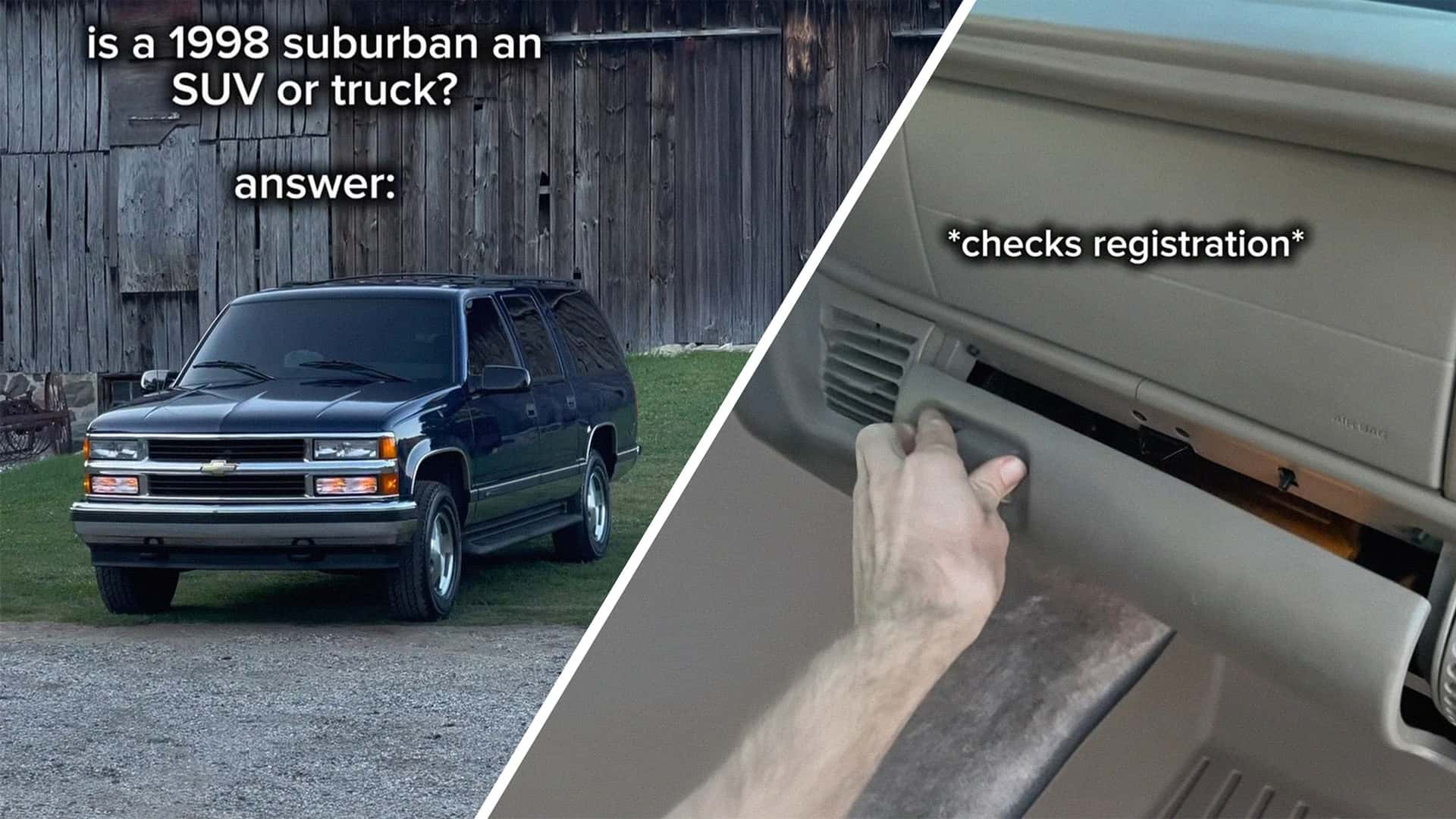
Chevrolet’s Suburban has survived 90 years and countless redesigns. Yet a recent Facebook Reel shows its biggest identity crisis might come not from styling cues, but from a single line on its registration
The clip from Oakland Auto Detail (@oaklandautodetail) in Zeeland, Michigan, has been viewed more than 300,000 times and is something of a head-scratcher.
The text overlay on the Facebook reel says, “Is a 1998 Suburban an SUV or a truck?”
The answer is blowing people away. It's neither an SUV or a truck, according to the Michigan vehicle registration form shown in the post.
So what is the 1998 Suburban classified as? It’s a station wagon.
“We were all wrong,” the post text says, acknowledging that it’s unlikely that anyone would think a quintessential sport utility vehicle has much in common with a long-body station wagon.
That moment prompts astonishment and debate: Is a 1998 Suburban legally a wagon? Or did someone at the DMV miscode it? The video’s pull lies in that dissonance—what seems obvious to enthusiasts turns out to be inscrutable in bureaucratic form.
FROM THE TRENDING NEWS DESK
Viral bits from across the social media landscape
Our team of experts tracks what's trending so you don't have to—from viral videos to online debates that have everyone talking.
Should the Suburban be Classified as a Station Wagon?
The Suburban has always straddled identities. Under its exterior, it shares many components with the Chevrolet Silverado pickup, including frames, suspension parts, and drivetrain architectures. Many owners casually describe theirs as “truck-based SUVs,” and some badging even leans that direction. However, over time, the definition of what constitutes a “truck” or “SUV” has evolved, and state registration systems often fail to keep pace with consumer language.
Dig deeper, and you find that vehicle classification for titling and registration has long operated under legacy definitions, often rooted in body style rather than platform. A “station wagon” classification originally applied to closed-body vehicles with extended cargo areas, regardless of whether they rode on a frame or unibody. In many state systems, the term lingers as a catch-all for any enclosed passenger vehicle with a rear cargo compartment, even when the vehicle in question is anything but a traditional wagon.
In Michigan, the Secretary of State’s vehicle record documentation includes lines for body style, vehicle type, and classification. The publicly available guide on reading Michigan vehicle records lists body style among those fields. Dealers in Michigan must complete a combined title/registration form when transferring ownership, including the vehicle’s body style. The exact classification of a 1998 Suburban as a wagon is mainly dependent on how the initial titling was done and whether any future transfers or corrections were made.
But this kind of discrepancy is not unique to Michigan. In Texas, the state’s vehicle registration manual explicitly recognizes a “Suburban” or “carry-all” classification, allowing such vehicles to be registered as either passenger vehicles or trucks. That flexibility gives room for interpretive choices based on weight, usage, or administrative precedent. In states where registration and insurance costs diverge sharply between passenger car and light truck rates, these classification details can carry real financial consequences for owners.
Causing Confusion
Across social media, the Facebook Reel sparked a flood of commentary, with contributors highlighting frames, tax loopholes, and regional quirks. One comment noted that Suburbans and Tahoes share Silverado frames, reinforcing the “truck-based” argument. Others pointed out that in some states, it’s cheaper to register a vehicle as a wagon than as a truck.
One commenter quipped, “The tailgate says GMC Truck—leave me alone, I’m coping.” Another referenced Michigan’s “station wagon” registration for Blazers and Suburbans in past plate eras. Many embraced the irony: that an icon of rugged utility gets tagged as a wagon in the ledger.
Why does this persist? One factor is inertia in state systems. Vehicle titling and registration rely on decades of procedural precedent, and updating them to reflect marketing or consumer language is rarely a priority. In some jurisdictions, “station wagon” remains a default catch-all for multi-passenger vehicles that don’t neatly fit into other classes. The Federal Highway Administration’s classification scheme, used for road reporting and tax apportionment, also separates “passenger cars” from “other two-axle, four-tire single-unit vehicles,” which often includes pickup trucks and vans—thus providing a framework in which body style matters less than axle count and gross vehicle weight.
Legal definitions in state codes sometimes retain older language that doesn’t anticipate modern crossovers. Michigan’s Vehicle Code, for instance, dates back decades and may not explicitly address SUVs as a category. The consequence is that when a vehicle like the Suburban is first titled or transferred, clerks armed with checkboxes may default to “station wagon” simply because it fits better in the form design. Subsequent owners, unless they request a reclassification, carry that label forward.
But the classification is more than semantics. It can affect insurance premiums, registration fees, emission testing categories, and eligibility for certain plates (commercial vs. passenger). Some states impose additional weight fees for trucks above certain gross vehicle weight thresholds. In Michigan, trucks exceeding 8,000 pounds used for commercial purposes carry different “GVW fees.” In other states, switching from truck to passenger designation can shave dollars off annual costs.
Still, the emotional resonance of the Suburban as a vehicle with its rugged, go-anywhere persona resists any bureaucratic pigeonhole. Observers will continue to refer to it as an SUV or truck because their experience behind the wheel confirms this. But as the Facebook Reel reminds us, someone somewhere started calling it a wagon, and that label stuck in the paperwork, even if it feels all wrong.
Motor1 reached out to Oakland Auto Detail via email. We’ll be sure to update this if they respond.



